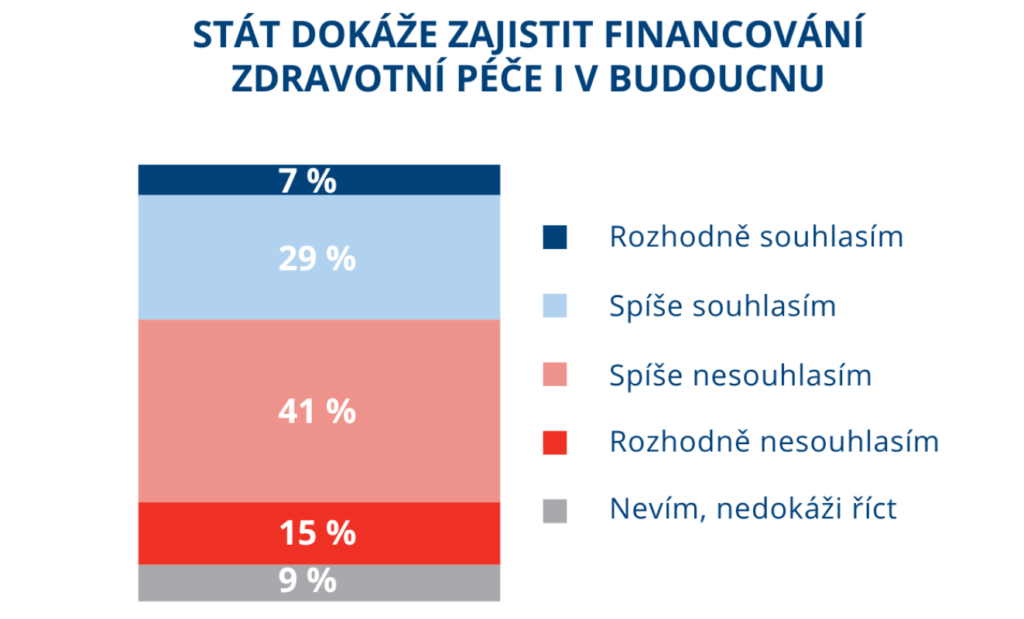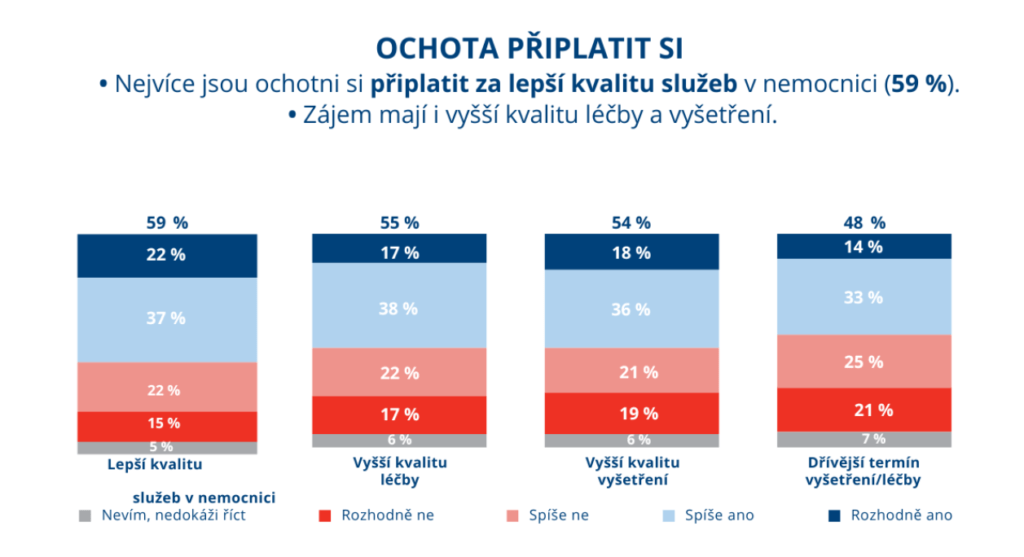According to a recent survey conducted by the Czech Association of Insurance Companies in cooperation with the Chamber of Commerce, 56 % Czechs are concerned about the financial future of the Czech healthcare system. They already perceive the lack of resources today - long waiting times, unavailability or limitations of care. As a result, 65 % of respondents perceive charging for healthcare. They are not opposed to payments if they were not compulsory and if they gave them the opportunity to choose a more comfortable examination method or treatment.
According to a recent survey conducted by the Czech Association of Insurance Companies (ČAP) in cooperation with the Chamber of Commerce, Czechs consider the Czech healthcare system to be financially unsustainable. According to 77 % respondents, costs will increase in the future. As many as 56 % respondents do not believe in the state's ability to ensure financing of healthcare in the future.
"We have been dealing with the topic of sustainable financing for a long time, for several years we have been intensively focusing on the issue of long-term care, the availability of which is increasingly adversely affected by the ageing population. But demography is also having a significant impact on the healthcare sector." explains the Executive Director of the Czech Association of Insurance Companies Jan Matoušek.
"The increasing age of the Czechs and more years spent in sickness are felt not only in the rising cost of care, but also in estimates of the overall sustainability of the health care system if no changes are made to the current system," he is complemented by the Vice President of the Chamber of Commerce Tomas Prouza. 69 % Czechs agree with the need to reform the health care system in some way.


The Czech healthcare system is already ailing
Respondents are already experiencing problems in the health sector. Most often, in 73 % they are bothered by long waiting times. One in two have experienced inaccessibility to health care due to lack of doctors and 24 % have experienced limitations in care due to financial reasons. "The financial situation in the health care system, especially the dissatisfaction of doctors with their salaries, has led to the fact that various surcharges are already common. The danger is that they are unregulated and that many doctors will move outside the health insurance system and free care will become an illusion." explains Jan Matoušek. According to the survey, 30 % Czechs already pay for registration at the doctor's office.
Mandatory fees no, voluntary payments yes
However, while Czechs have a problem with the return of compulsory fees (only 19 % respondents were in favour), many of them would agree with voluntary surcharges. 44 % respondents are willing to pay extra for care beyond that guaranteed by the state. "The need for change has been discussed for many years and is perceived by a large number of Czechs. It is therefore high time to come up with concrete solutions that will keep our health system at the current high level. Multi-source financing, for example in the form of the possibility to pay extra for a different examination method, is supported by both patients and experts. We cannot force anyone to pay extra, but neither can we prevent anyone from doing so, not in a grey area, but in a completely transparent and rule-based way,", says Tomáš Prouza on the financing of health care and adds: "Based on demographic and economic data, we can clearly see that the current system is not sustainable. We must therefore adapt to the clear facts so that the system does not start to collapse and the quality of care is not compromised.
Most often, Czechs are willing to pay extra for better quality of hospital services (59 %) and higher quality of treatment (55 %) and examinations (54 %).

The Future of Czech Healthcare survey was conducted by the independent research agency Ipsos. The data collection was carried out on two samples: on 1023 respondents aged 18-79 years, representative by gender, age, education and region and size of place of residence, and on 1019 respondents aged 18-65 years, representative by gender. Data collection was conducted online.
CAP/ gnews - RoZ
ILLUSTRATIVE PHOTO - pixabay



